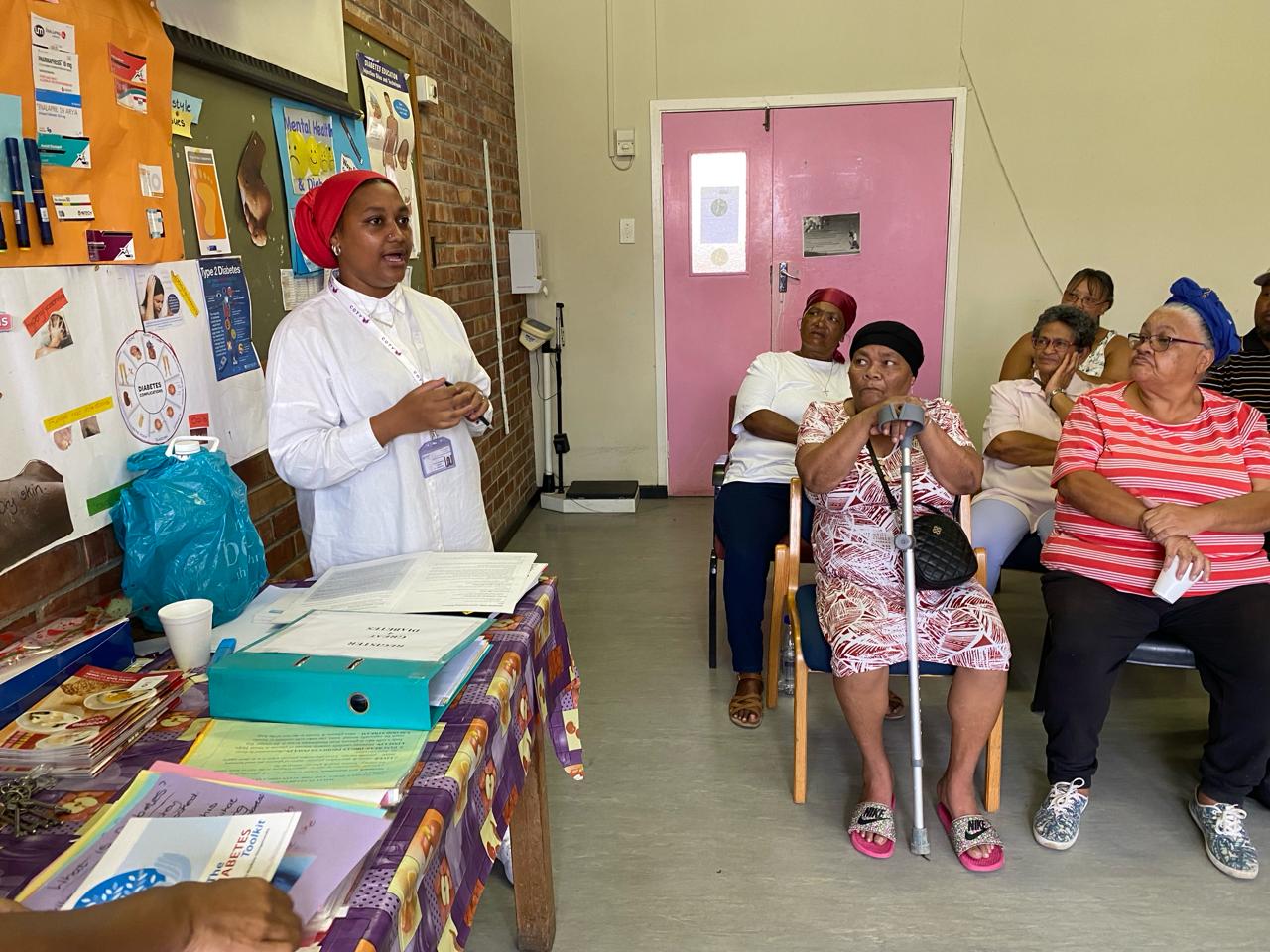HRIDAY
Leading an equitable response to NCDs in India
Meaningful Engagement of People with Lived Experiences
29 Jan 2026
Global Alliance for Chronic Diseases | 25 Sep 2025
Type 2 diabetes affects the lives of one in four South Africans over the age of 45, placing a heavy burden on families and communities. Beyond the costs of routine care, diabetes complications such as stroke, heart attacks, kidney failure, nerve damage, amputations and blindness perpetuate cycles of poverty and strain already overburdened health services. Today, Type 2 diabetes is the leading cause of death in South Africa.
The South African National Department of Health acknowledges that gaps in disease prevention, early diagnosis, adequate treatment, counselling and patient education on diabetes contribute to this crisis. The National Strategic Plan for the prevention and control of NCDs sets targets to improve the early detection and treatment of NCDs: 90% of adults will know if they have raised blood glucose, 60% of those with raised blood glucose will receive intervention and 50% of those receiving an intervention will achieve control of their diabetes.
However, primary care clinics in South Africa are overwhelmed with patients who experience long waiting times and brief consultations with clinicians who may have poor communication skills and lack expertise in lifestyle and behaviour modification. This limits the provision of effective patient education and counselling.
The Group Empowerment and Training (GREAT) for diabetes programme was developed to fill this gap through the empowerment of men and women living with diabetes who are dependent on the public sector primary care services in South Africa.
Previous research found that GREAT for diabetes is a feasible and cost-effective intervention in South Africa and between 2019 and 2023, a scale-up project was launched to test the implementation of GREAT for diabetes across South Africa.
Supported by the South African National Department of Health who found the initiative to be “appropriate, acceptable, and aligned with national policy”, GREAT was implemented in five of the nine provinces. Engagement with provincial policymakers was more challenging and varied between the provinces.
The programme consists of four group sessions led by trained facilitators, each lasting 60-90 minutes with 10-15 patients with type 2 diabetes. Group sessions foster solidarity and encourage self-management of diabetes and the four sessions within the programme each focus on a different aspect of diabetes care including:
The facilitators of group sessions for patients are trained through three-day workshops. To encourage attendance, the group sessions are scheduled on the same day as the patient’s usual appointment and dispensing of medication is prioritised for those who attend the GREAT for diabetes session.
When the COVID-19 pandemic delayed implementation and in-person activities for roughly two years, the project team developed a WhatsApp Chatbot that continued to provide accessible content for self-management of type 2 diabetes.
The GREAT for diabetes approach enhances the relationship between the healthcare workers and the patients through a model based on a guiding style of communication that was derived from motivational interviewing. The guiding style emphasises a collaborative approach with ideas evoked from the patients, empathetic engagement and respect for people’s choices and control; as opposed to directive, inflexible, and prescriptive instructions.
Among the patients who attended the GREAT for diabetes sessions, there was an improvement in knowledge, diet, and physical activity, as well as an improved control of blood glucose and blood pressure. It has been reported that patients have taken what they learned in group sessions back to their communities and families. When patients are empowered to self-manage their diabetes, the burden on the health system is reduced and patients can work and provide for their families.

Of the five provinces where GREAT for diabetes was implemented, the greatest success was in the Western Cape, where implementation and scale up has been sustained.
In the Metro Health Services of the Western Cape, all four substructures have now adopted GREAT for diabetes and two have incorporated it into their operational plans, meaning that implementation is monitored and reported on regularly.
In large part, the success of this project in the Western Cape can be attributed to a close collaboration between researchers, the Provincial Department of Health and the local district management teams. The Western Cape district health services have been supportive of the GREAT for diabetes initiative and some districts have provided funding to print materials and run training. Sustaining implementation in other provinces after the disruption of COVID-19 was challenging. Although provincial managers in Northern Cape and KwaZulu-Natal continue to espouse support for adopting GREAT for diabetes, this has not led to sustained implementation in these provinces.
The results informed a programme theory, which describes the key factors influencing successful implementation of GREAT for diabetes. This programme theory can be used to guide further scale up in each province and scale out to provinces that have not yet implemented GREAT for diabetes. The National Department of Health expressed their desire to see GREAT for diabetes incorporated into the model of care in each province, but as provinces have autonomy over their own budgets national scale up will require further buy-in from provincial policymakers.
In the future, the project hopes to engage community health workers to promote prevention of type 2 diabetes. The programme may be adapted to support the initiation of insulin. The ultimate goal of GREAT for diabetes is to integrate group empowerment and training sessions into the model of care until it is adopted on an institutional level in all primary care facilities.
To access publications relating to this project, see GACD’s publications webpage
(filter by project SU23 – GREAT: Evaluating the implementation of Group Empowerment and Training for diabetes in South Africa).
For more information about this project, please see the project website or contact Robert Mash or Darcelle Schouw, Stellenbosch University, South Africa.